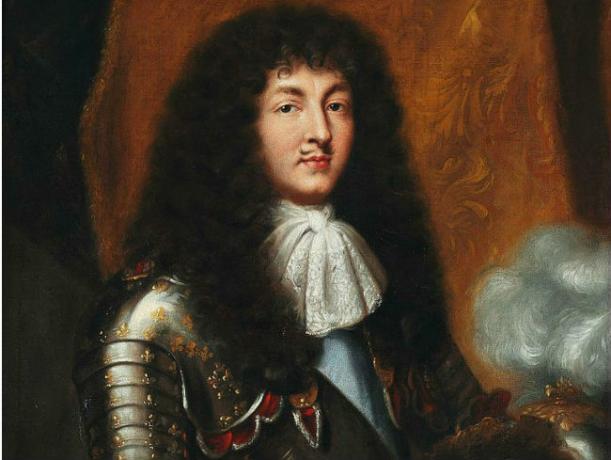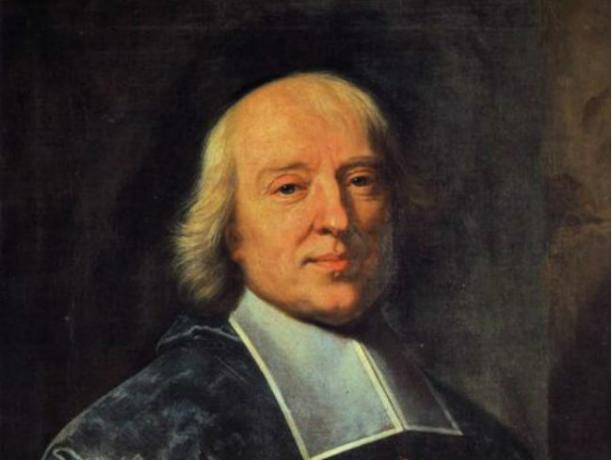absolutism is a political system which predominated in Europe from the 16th to the 18th century, and which consisted of a government in which absolute power was concentrated in the hands of the king or queen.
There was a kind of fidelity relationship between the subjects and the monarchs. Obedience and respect should be practiced by all people.
Check below a list of 5 fundamental characteristics of the companies of the Old Regime (name used to refer to absolutism after its end).
1. Unlimited centralization of power in the hands of monarchs

King Louis XIV, known as King Sol, symbol of monarchical absolutism
In the absolutist state, monarchs had autonomy to give orders and make decisions without having to give any kind of satisfaction to the court or other organs of sovereignty.
With the system of absolutist regime, the monarchs were even exempt from determinations created by laws, that is, everything that they themselves decided would come into force.
Some of major absolutist kings and queens were:
Elizabeth I: Queen of England and Ireland from 1558 to 1603.
D. João V: King of Portugal from 1707 to 1750.
Fernando VII: King of Spain from 1808 to 1833.
Fernando of Aragon and Isabel of Castile: kings of Spain in the 16th century.
Henry VIII: King of England in the 17th century.
- Louis XIII: King of France from 1610 to 1643.
Louis XIV: King of France from 1643 to 1715.
Louis XV: King of France from 1715 to 1774.
Louis XVI: King of France from 1774 to 1789.
Nicholas II: King of Russia from 1894 to 1917.
2. Monarchs had the autonomy to infer in religious matters

Jacques Bossuet, theorist of French absolutism
The influence of the monarchy was reflected in the population's religious choice: the religion chosen by the monarchs should be followed by the subjects.
In places where religious cults other than those established by the king or queen were permitted, subjects were considered second-rate.
The church was also directly impacted by absolutism, as monarchs were responsible for appointments to high clergy positions.
Absolutism had some peculiarities depending on where it was applied. In France, for example, some theorists, such as Jacques Bossuet, they considered the power of monarchs to be a gift from God. It was as if the kings and queens were representatives of God on Earth and, therefore, the subjects should obey them without offering any kind of resistance and without asking questions.
Based on this idea, monarchs guaranteed their sovereignty.
Learn more about the meaning of sovereignty.
3. Institution of laws and executive decisions under monarchic control
Monarchical absolutism allowed kings and queens to create laws without the need for approval from society.
These laws generally prioritized the monarchy itself and the nobility.
Know the meaning of nobility.
The nobles were quite privileged during the absolutist regime it even gained exemption from various taxes and the power to obtain personal favors from the king.
The monarchs also had autonomy to create taxes that financed their wars and their projects.
4. The power of monarchs was hereditary
The absolutist monarchs reigned for life and at his death, the throne was automatically occupied by his descendant.
As the absolute power of the monarchy was passed down from generation to generation, it remained concentrated in the same families and dynasties over the years.
Get to know some examples of 21st century hereditary succession absolute monarchies:
- State of Qatar: His Highness Emir Tamim bin Hamad (beginning 25 June 2013).
- Kingdom of Saudi Arabia: His Majesty King Salman bin Abdul‘aziz (beginning January 23, 2015).
- UAE: His Highness President Khalifa bin Zayed (beginning 3 November 2004).
Understand the meaning of dynasty.
5. Mercantilism was the main economic system of absolutism
This system was based on state intervention in the country's economy.
The monarchy encouraged maritime exploration and the expansion of commerce by the bourgeoisie, as it considered that the greater were the accumulation of precious metals (gold and silver, mainly) the greater the development of the country and its prestige International.
The bourgeoisie, in turn, was in favor of the king's power because they were aware that the absence of fiscal and monetary units was not beneficial to their business. There was no currency with a previously defined value and this caused several unexpected and inopportune situations in the progress of commercial activities.
For this reason, the bourgeois were in favor of establishing an authority to set certain standards.
Mercantilism applied taxes to foreign products at customs, accumulated wealth and encouraged the local industrial development to reduce the need for imports and consequently prevent the outflow of capital.
See more about the absolutism and mercantilism
